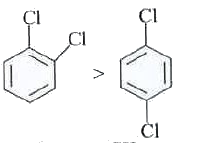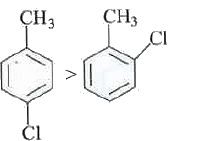Which is correct?
Gametes are invariably haploid
Spores are invariably haploid
Gametes are generally haploid
Both spores and gametes are invariably haploid
To determine which statement is correct regarding gametes and spores, we need to analyze each option based on biological principles.
1. Understanding Gametes:
- Gametes are reproductive cells that are involved in sexual reproduction. In most organisms, gametes are produced through meiosis, a type of cell division that reduces the chromosome number by half.
- Therefore, gametes are typically haploid, meaning they contain only one set of chromosomes (n).
2. Understanding Spores:
- Spores are asexual reproductive units that can develop into a new organism without the fusion of gametes. They are produced by various organisms, including fungi and plants.
- Spores can be formed through mitosis (equational division), which means they can be diploid (2n) or haploid (n), depending on the organism and the specific life cycle stage.
3. Analyzing the Options:
- Option 1: "Gametes are invariably haploid."
- This is correct because gametes are always produced through meiosis and are haploid.
- Option 2: "Spores are invariably haploid."
- This is incorrect because spores can be diploid in some organisms.
- Option 3: "Gametes are generally haploid."
- This is misleading because while gametes are typically haploid, the use of "generally" implies exceptions, which is not the case for gametes.
- Option 4: "Both spores and gametes are invariably haploid."
- This is incorrect because, as stated, spores can be diploid.
4. Conclusion:
- The correct statement is: "Gametes are invariably haploid."
Final Answer:
The correct option is: Gametes are invariably haploid.
---
- Gametes are reproductive cells that are involved in sexual reproduction. In most organisms, gametes are produced through meiosis, a type of cell division that reduces the chromosome number by half.
- Therefore, gametes are typically haploid, meaning they contain only one set of chromosomes (n).
- Spores are asexual reproductive units that can develop into a new organism without the fusion of gametes. They are produced by various organisms, including fungi and plants.
- Spores can be formed through mitosis (equational division), which means they can be diploid (2n) or haploid (n), depending on the organism and the specific life cycle stage.
- Option 1: "Gametes are invariably haploid."
- This is correct because gametes are always produced through meiosis and are haploid.
- Option 2: "Spores are invariably haploid."
- This is incorrect because spores can be diploid in some organisms.
- Option 3: "Gametes are generally haploid."
- This is misleading because while gametes are typically haploid, the use of "generally" implies exceptions, which is not the case for gametes.
- Option 4: "Both spores and gametes are invariably haploid."
- This is incorrect because, as stated, spores can be diploid.
- The correct statement is: "Gametes are invariably haploid."
The correct option is: Gametes are invariably haploid.
Topper's Solved these Questions
- ANATOMY OF FLOWERING PLANTS BOOK - VMC MODULES ENGLISHCHAPTER - ANATOMY OF FLOWERING PLANTS EXERCISE - ENABLE
50 Videos
- ANATOMY OF FLOWERING PLANTS BOOK - VMC MODULES ENGLISHCHAPTER - ANATOMY OF FLOWERING PLANTS EXERCISE - EFFICIENT
49 Videos
- BIODIVERSITY AND CONSERVATIONBOOK - VMC MODULES ENGLISHCHAPTER - BIODIVERSITY AND CONSERVATIONEXERCISE - IN-CHAPTER EXERCISE-B
10 Videos
Similar Questions
Knowledge Check
Which are correct regarding boiling point?
A B
B C
C D
D
Which is not correct?
AUGG codes for tryptophanBUAA codes for lysineCCysteine is coded by UGU and UGCDTyrosine is coded by UAU and UAC
